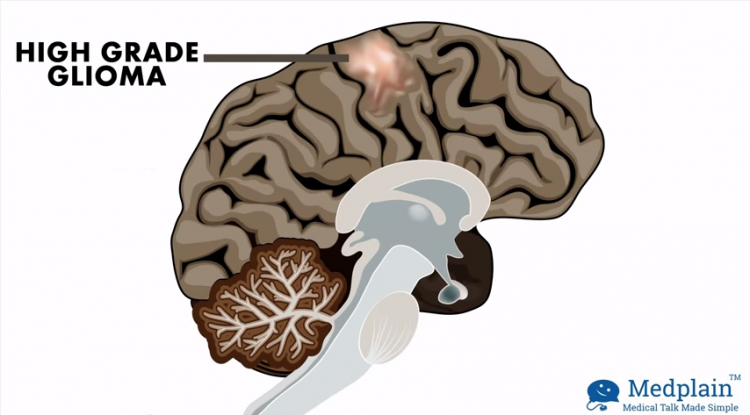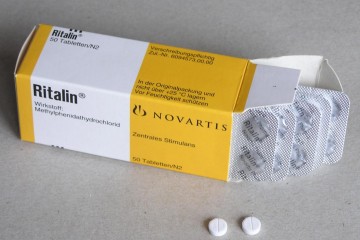Medical Marijuana: The Next Big Thing for Aggressive Brain Tumor?

A study published in November 2014 in Molecular Cancer Therapeutics and conducted at St. George’s University of London’s Department of Oncology has found that the use of cannabinoids, specifically delta-9-tetrahydrocannabinol (THC) and cannabidiol (CBD), may be useful in treating high-grade gliomas, potentially slowing the disease’s progression.
Some of the results from this study, summarized by MedicalJane.com:
- They found that use of CBD and THC in pure form (>96% purity) and in their whole-plant forms (60% to 72% of each cannabinoid) decreased the number of high grade glioma cells in a dose-dependent manner.
- Analysis of the cells showed that there were no changes made to cell DNA, which points to the mechanism of action being one of cytostasis (i.e. prevention of cell growth and proliferation). The effect was greater for GBM cells than for glioblastoma astrocytoma cells.
- Rather than causing apoptosis, the cannabinoids seemed to inhibit cell growth and proliferation via autophagy.
- Additionally, it was found that CBD was more effective in inhibiting cell growth in its pure form, while THC was more effective in its whole-plant form.
- The combination of CBD and THC seemed to have even greater effects (for glioblastoma astrocytoma more than for glioblastoma multiforme), although these results were not statistically significant (i.e. it is fairly likely that this association occurred by chance).
- CBD and THC appeared to control cytostasis through mechanisms such as modification of phosphorylation patterns in cell signaling pathways which lead to increased cell growth and proliferation, most significantly through MAPK pathways after use of pure CBD or THC for 4 hours, but also through ERK pathways for glioblastoma multiforme cells (and glioblastoma astrocytoma cells, when CBD was used alone), with potential for modulation through the AKT pathway. At high doses, cannabinoids decreased AKT and and ERK pathway activation, and even more significantly when radiation was used in conjunction.
According to the researchers, “…[T]hese data add further support to the concept that cannabinoids both alone and in combination with each other, possess anticancer properties.”
Given this exciting new evidence, in conjunction with the previously existing evidence supporting the potential application of cannabinoids as antitumor/anticancer agents, increased research on the use of cannabinoids in treatment of not only high grade gliomas, but also other types of cancerous growths, is warranted and needed as soon as possible.





No Comment